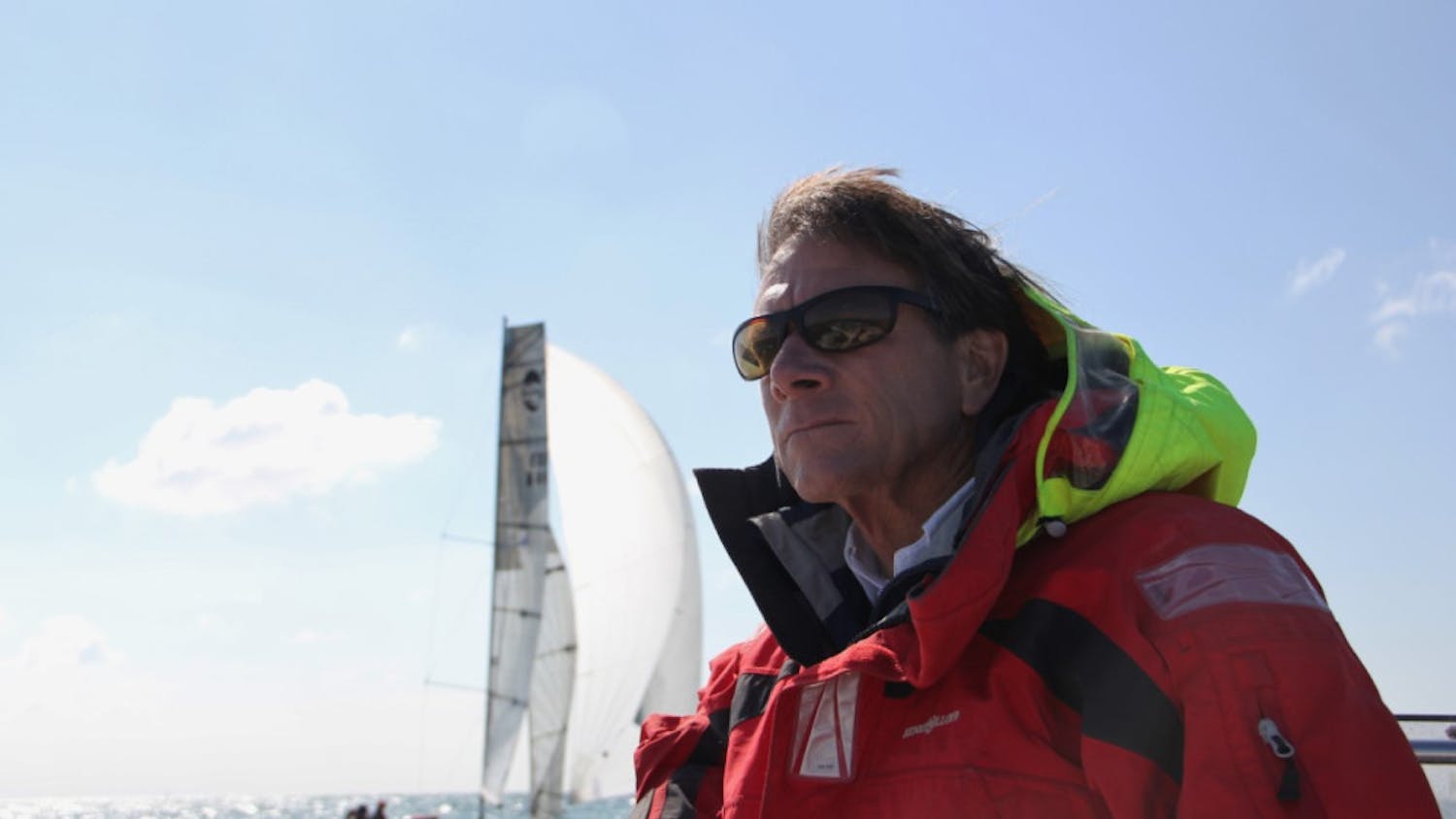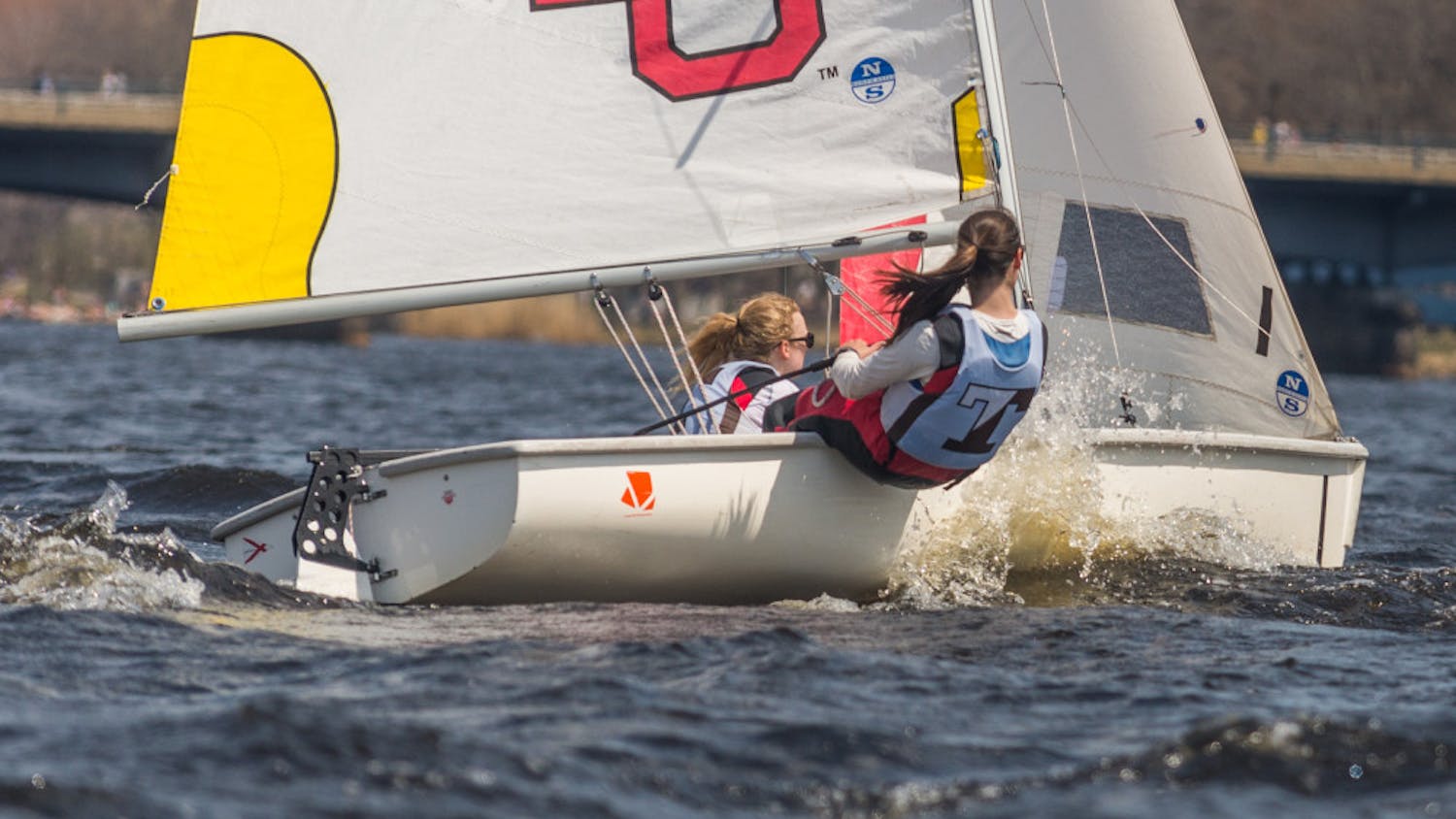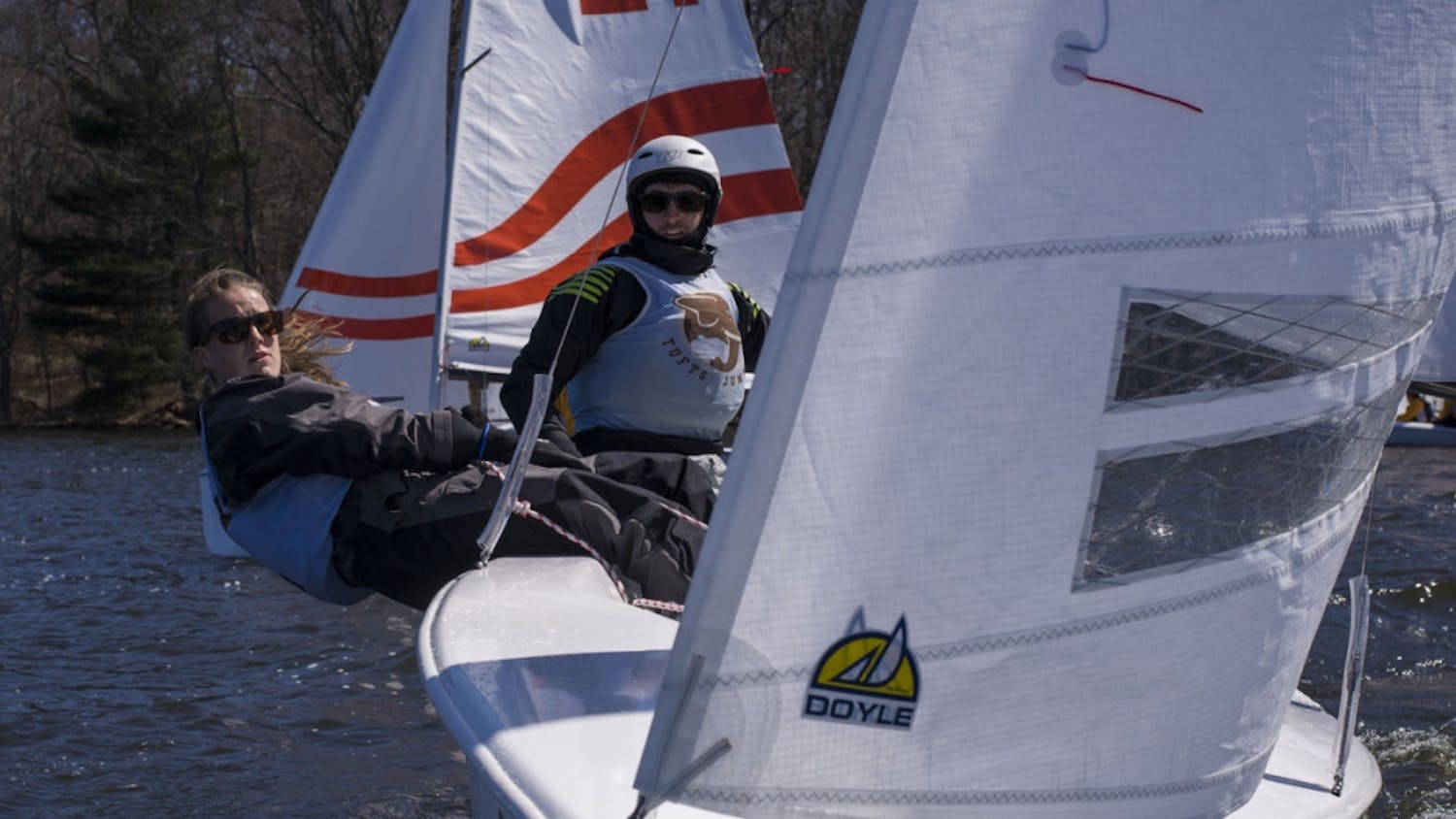With only an eight millimeter wire to steady himself, junior Max Bulger stood all alone on the foremost part of the ship and attempted to cross his sailboat's bow. He tried to shift direction, but the crewmembers turned the boat unexpectedly and Bulger was jerked from the top of the boat into the dark waters of the Indian Ocean outside of Oman.
"I knew as I fell off I could either try to hold onto the boat or I could just start swimming home," Bulger said.
He opted for the former, grabbing onto the back of the boat as it sailed right over his head in the water and fracturing a rib in the process of scrambling for safety.
"I was mortified," said Bulger, who had taken the plunge in the first race of the Extreme Sailing Series on February 28, a race that he and his Oman Air teammates ended up winning despite his tumble. In addition to winning that race, the five boaters took home the title for the entire first leg of the series, one of eight events spanning the globe and the entire year.
Now in its sixth year, the Extreme Sailing Series was conceived to bring attention to competitive sailing at the highest level by holding events around the world in a yearlong competition. It is one of the premiere events in the sport, and contestants use boats faster than those used in the Olympics in locations from frigid Qingdao, China to sunny Porto, Portugal.
That means that nearly every month, Bulger will fly to another part of the world to compete as an amateur with the best professional sailers in the world, serving as the trimmer for the Oman Air team.
"This was something that I was watching on TV a year ago, and to be doing it is pretty crazy," he said.
It is especially crazy for Bulger, who is the event's only competitor still in college and is surrounded by teammates who have competed in the Olympic Games.
At the beginning of February, Bulger left Medford to head to a foreign country with teammates nearly twice his age and with only 17 days to meet, train and then compete.
"It was a little weird to be around those guys that have a lot more experience than me," Bulger said. "But they were really cool about it and I've gotten used to it over the last year. I just showed up and tried to work as hard as I could."
For the two weeks before the competition, the team had little downtime to explore the Arab peninsula, with every day filled by morning lifting sessions, afternoon practices on the course and talks with the team's skipper.
But by race time, Bulger and his team had bonded and felt prepared for the four?day competition comprised of 29 races. Throughout the event, Oman Air stayed near the lead, but even after three and a half days the winner was not yet decided.
Heading into the final race, the Oman Air team knew it simply had to stay close enough to the front not to be overtaken in points by its closest competitors. When they crossed the line in third place, they knew that the first act of the series was theirs.
"It was a cool moment," Bulger said of the final stretch. "It was all focused on the last hundred yards, and coming in the finish line in the last race people got pretty excited."
Excitement was particularly high, Bulger explained, because his team is sponsored by an Omani company.
Now, with one act down and seven to go, Bulger finds himself readjusting to student life, hanging out on the Tufts campus with the Jumbos' sailing team and preparing to take his talents to Fushan Bay in Qingdao for the Series' second event in April.
Oman Air will have the lead heading into that event, meaning Bulger can look back on his initial slip?up as a learning experience, one that helped him get past his early?competition jitters.
"I can laugh about it now," Bulger said.
Because winning heals all wounds.





